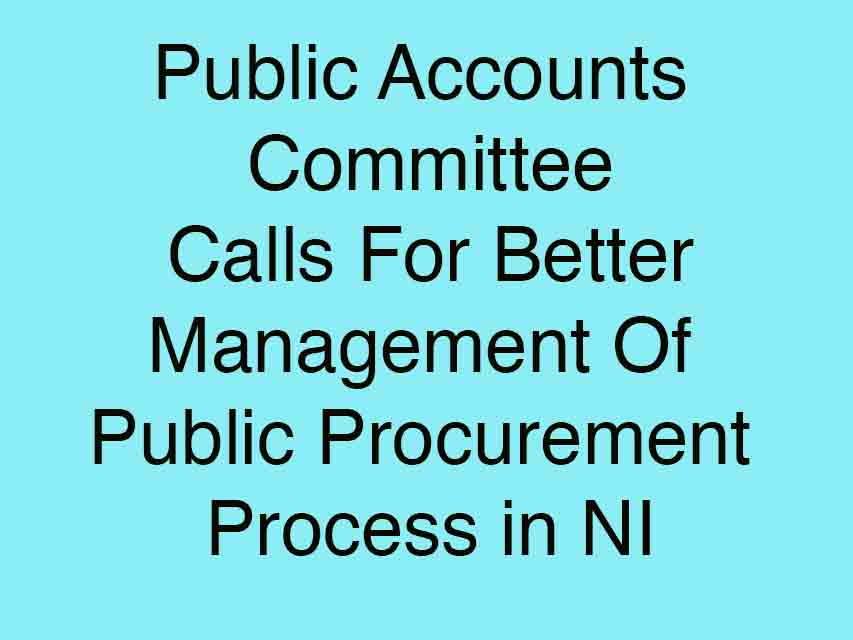An Assembly Committee identifies risks and weaknesses in the public procurement process in Northern Ireland
Have you ever considered tendering for a government job in Northern Ireland ?
If so, read on!
An Assembly Committee is calling for better accountability and governance arrangements around public procurement in Northern Ireland having identified a series of significant risks and weaknesses in the current processes.
Following its Inquiry into this area, the Public Accounts Committee (PAC) has also expressed concern that there is no specific strategy in place to help achieve key public procurement objectives.
It has published a report today outlining its findings, alongside a number of recommendations it wants the Department of Finance to consider without delay.
In the development of its report, the Public Accounts Committee considered the 2023 Northern Ireland Audit Office (NIAO publication, Public Procurement in Northern Ireland.
Each year, around 5,000 contracts are awarded by public bodies which together are worth between £2.2 – £4 billion.

Together, Departments and other public bodies – known as contracting authorities – share the management of this expenditure. They are supported by Centres of Procurement Expertise (CoPE) which are responsible for providing technical support and guidance to ensure compliance with legislation and other regulations.
Daniel McCrossan MLA, Chair of the Public Accounts Committee said: “It is a fundamental requirement that the goods, services and infrastructure purchased via public procurement deliver value for money for the end user.
“However, the Committee found that the consequences of poor processes are reducing public sector organisations’ ability to demonstrate cost-effectiveness to the taxpayer.
“We were shocked to find there is actually no specific strategy in place to coordinate public procurement services: effectively, a key building block in the overall process of purchasing goods and services is missing.
“There has also been a failure to provide appropriate leadership and direction at a strategic level in this area.
“In Northern Ireland, the responsible body is the Procurement Board, but it has failed to be sufficiently proactive in driving strategic responses to critical issues and weaknesses.
“We don’t believe that the current structures are meeting the challenges faced and maximising the opportunities for efficient and effective procurement services.”
PAC has made 11 recommendations to the Department of Finance (DoF) and has asked that officials report back to the Committee on progress within agreed timeframes.
In addition to establishing a procurement strategy for the Northern Ireland Civil Service and other government public bodies, PAC has called for an urgent review of governance and oversight structures as well as the development of a communications strategy to ensure key information reaches all potential suppliers.
The Committee has also suggested an interface between eTendersNI and the UK single portal should be put in place as a matter of urgency.
It has also recommended the Department arranges appropriate oversight of technological risks and opportunities.
***
Northern Ireland has a high proportion of small businesses, many being family run. An ‘urgent review of governance and oversight structures’ could possibly include local councils and government quangos opening up opportunities to Northern Ireland businesses through the public tendering portal.
However, ‘efficiency’ recommendations seems to include opening the doors for UK businesses to tender for work in Northern Ireland. This may well be a positive idea in that it will drive down costs for government, but will it ensure quality of delivery of products and services ? And what are the long-term implications to trade and commerce in Northern Ireland ?
And given the Northern Ireland budget is currently constrained, how will opening up tenders impact of the idea of developing a circular economy in Northern Ireland ?
The debate is just starting and many organisations such as the FSB NI, IoD, and the many trade bodies and chambers across Northern Ireland will be watching this space closely in the coming weeks and months.

























